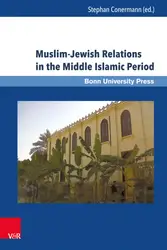A unique Mamlūk manuscript tells the story of a Damascene jurist. Ibn al-Zamlakānī's story revolves around a dramatic episode in the life of his master, the great judge Tāj al-Dīn al-Subkī, who is the central figure (hero) of the tale. The composer justly names his document maqāmah. In rhyming prose, it narrates several episodes. Transmitted by a narrator (or at least his voice), who distances himself from the event, it is a story about an escape from hardship of a hero who is supported by good characters and face some evil enemies. Yet, it is not a biography, but a dramatic plot that transmits a moral lesson. The maqāmah illuminates the relations between the Mamlūk ruling military aristocracy and the religious establishment, as well as the competition that divided the Damascene urban elite.

State formation and the structure of politics in Mamluk Syro-Egypt, 648–741 A.H./1250–1340 C.E.
Winslow Williams Clifford
book
Everything is on the Move : The Mamluk Empire as a Node in (Trans-)Regional Networks
book
The Rise and Fall of a Muslim Regiment : The Manṣūriyya in the First Mamluk Sultanate, 678/1279–741/1341
Amir Mazor
book
History and Society during the Mamluk Period (1250–1517) : Studies of the Annemarie Schimmel Institute for Advanced Study II
book
Mamluk Historiography Revisited – Narratological Perspectives
book
Muslim-Jewish Relations in the Middle Islamic Period : Jews in the Ayyubid and Mamluk Sultanates (1171–1517)
book
The Mamluk Sultanate from the Perspective of Regional and World History : Economic, Social and Cultural Development in an Era of Increasing International Interaction and Competition
book
Islamic Philosophy from the 12th to the 14th Century
book
Domestic Slavery in Syria and Egypt, 1200–1500
Jan Hinrich Hagedorn
book
Living with Nature and Things : Contributions to a New Social History of the Middle Islamic Periods
book
History and Society during the Mamluk Period (1250–1517) : Studies of the Annemarie Schimmel Institute for Advanced Study III
book
Studies on the History and Culture of the Mamluk Sultanate (1250–1517)
book
